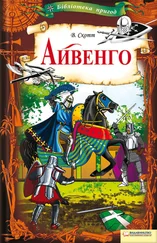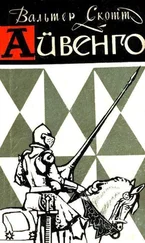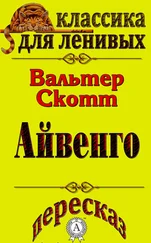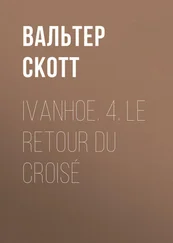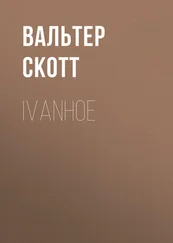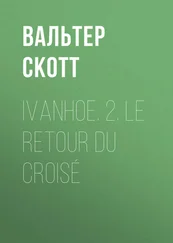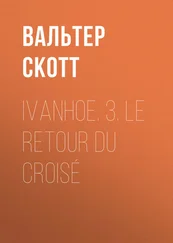“Friends,” said the Chief, looking round, “the old man is a Jew, but his grief touches me. – Tell us the truth, Isaac—will paying this ransom of a thousand crowns leave you without money?”
The Jew grew pale but could not deny there might be some small sum left.
“Well, we will not take too much from you,” said Locksley, “Without money you cannot hope to buy the freedom of your child. – We will take the same ransom from you as from Prior Aymer, or rather at one hundred crowns lower, which hundred crowns shall be mine own peculiar loss, and you will have six hundred crowns remaining. Templars love the glitter of silver shekels as well as the sparkle of black eyes. Did I say well, my friends?”
The yeomen expressed their support for their leader’s decision.
“Prior Aymer,” said the Captain, “come apart with me under this tree. I have heard, that you love expensive good wines and hunting. So perhaps you need money. This Jew Isaac will give you a hundred silver coins, if your communication with your friend the Templar shall avail to procure the freedom of his daughter. What say you to this, Prior Aymer?”
“When Isaac returns successful through your mediation,” continued the Outlaw, “I swear I will see that he pays you the money in good silver.”
The Prior agreed and wrote a letter to Brian de Bois-Guilbert, saying, “This can help you, if you add some money.”
It remained that the Jew should produce some security for the ransom which he was to pay on the Prior’s account, as well as upon his own. He wrote a letter to a brother of his tribe at York, requiring him to pay to the sum of a thousand crowns.
Then the Jew hurried in the direction of Templestowe.
Prince John had invited the members of his party to the Castle of York and entertained them with feasts. But open declaration of his intentions was delayed by the absence of three important members of his party.
It was on the morning after the fall of Torquilstone, that De Bracy came to his Prince. His armour carried all the signs of battle, it was broken and stained with blood in many places. He took off his helmet and stood for a moment as if to collect himself before he told his news.
“De Bracy,” said Prince John, “what does this mean? – Are the Saxons in rebellion?”
“Speak, De Bracy,” said Waldemar Fitzurse, “Where is the Templar? – where is Front-de-Boeuf?”
“The Templar has run,” said De Bracy; “and Front-de-Boeuf is dead. But the worst news is not yet said, – Richard is in England—I have seen him and spoken with him.”
Prince John turned pale, tottered, and caught at the back of an oaken bench to support himself.
“You have gone mad, De Bracy,” said Fitzurse, “it cannot be true.”
“It is as true as the truth itself,” said De Bracy; “I was his prisoner, and spoke with him.”
“And you were his prisoner?” said Waldemar; “he is then at the head of an army?”
“No—only a few yeomen were around him, and to these his person is unknown. I heard him say he was about to depart from them. He joined them only to assist at the storming of Torquilstone.”
“Yes,” said Fitzurse, “such is the fashion of Richard. What do you propose to do, De Bracy?”
“I? – I offered Richard the service of my Free Lances, and he refused them—I will lead them to Hull, find some ships, and sail to Flanders. A man of action will always find employment in these times.”
Prince John had gradually awakened from the stupor into which he had been thrown by the unexpected information. “They are deserting me,” he said to himself.
“My good lords, I thought you were wise men, yet you throw away money, honour, pleasure at the moment when our game can be won with one stroke!”
“I don’t understand you,” said De Bracy. “As soon as Richard’s return is declared, he will be at the head of an army and our game will be lost.”
“There is only one way to win,” said the Prince, “this object of our terror travels alone. He must be met on his way.”
“Not by me,” said De Bracy hastily, “I was his prisoner, and he showed me mercy. I will not harm a feather on his helmet.”
“Who spoke of harming him?” said Prince John, with a hardened laugh, “you will say next that I meant he should kill him! – No, a prison would be better. Our uncle Robert lived and died in the castle of Cardiffe.”
“Prison or tomb,” said De Bracy, “I wash my hands of the whole matter. He gave me my life. I will not lift hand against him. I will serve you as a knight, but this highway task is not for me.”
“I will take on me,” said Waldemar Fitzurse; “this dangerous task.” He left the apartment. “He goes to make my brother prisoner,” said Prince John to De Bracy. “I believe he will follow our orders, and pay respect to our dear Richard.”
* * *
The Preceptory of the Templars was a castle. Isaac paused at the gate, to consider how he might enter the Preceptory. [24]
In the meantime the Grand Master [25]of the Order Lucas Beaumanoir was walking in a small garden within the walls of the Preceptory and held a sad and confidential talk with a brother of his Order, who had come in his company from Palestine. The Grand Master was an old man with a long grey beard. He was a soldier and an ascetic, and you could see it from his face.
“Conrade,” said the Grand Master, “dear companion of my battles, only you I can tell how much sorrow the degradation of our Order gives me.”
“It is true,” answered Conrade Mont-Fitchet, “that the irregularities of our brethren in England are even worse than those in France.”
“Because they are more wealthy,” answered the Grand Master. “I swear to you that except for yourself and some few knights that still keep the ancient severity of our Order I see not one true brother Templar. They wear fur, they hunt, they read what they are prohibited to read, they eat delicacies and to drink like a Templar has become a proverb! – They are prohibited to offer even to their sisters and their mothers the kiss of affection, and I am ashamed to speak—ashamed to think—how they break that rule. The souls of our pure founders are disturbed even in paradise itself. I have seen them, Conrade, in my dreams. Beaumanoir, they say, you sleep—awake! My actions must be sharp and sudden—the Order is in a crisis. We must cast away these riches, which are a temptation to princes. Or—mark my words—the Order of the Temple will be utterly demolished.”
“Now may God stop this!” said the Preceptor. [26]
“Amen,” said the Grand Master, with solemnity, “but we must deserve His aid.”
At this moment a squire entered the garden, and, bowing profoundly before the Grand Master, stood silent, waiting for his permission to tell his news.
“Speak, Damian, we permit you,” said the Grand Master.
“A Jew stands outside the gate, noble and reverend father,” said the Squire, “who wants to speak with brother Brian de Bois-Guilbert.”
“You are right to tell me first. It is important for us to know about this Bois-Guilbert and his actions,” said the Grand-Master, turning to his companion.
“People say he is very brave,” said Conrade.
“It is true,” said the Grand Master; “in our courage only we are not degenerated from the heroes of the Cross. But brother Brian has become an active agitator and a leader for those who criticize our authority. – Damian,” he continued, “lead the Jew to our presence.”
The squire left and in a few minutes returned with Isaac of York. When the Jew had approached within the distance of three yards, Beaumanoir made a sign that he should come no farther. The Jew kneeled down on the earth which he kissed in token of reverence; then rising, stood before the Templars, his hands folded on his bosom, his head bowed on his breast.
Читать дальше
Конец ознакомительного отрывка
Купить книгу

